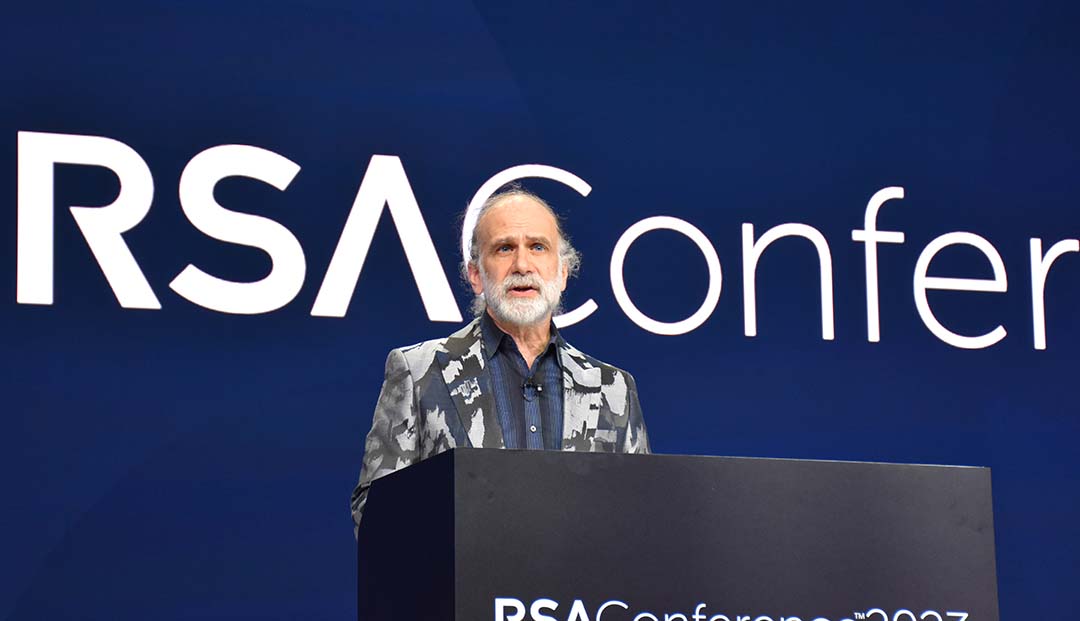Bruce Schneier Addresses AI Hype, NSA Surveillance, and Cyber ‘Rage Fatigue’

Bruce Schneier on Current Cybersecurity Challenges
Renowned security expert Bruce Schneier recently participated in an AMA-style session where he tackled critical issues in cybersecurity, including the influence of artificial intelligence (AI), the impact of government surveillance, and the ethics of technology in society. The conversation, moderated by Cecilia Marinier from the RSA Conference, highlighted the multifaceted threats facing our digital world today.
Understanding Cybersecurity Frustrations
In response to an increasing trend of alarming cybersecurity news, Schneier addressed what he calls "rage fatigue." He noted that the overwhelming nature of cybersecurity threats can be exhausting for individuals and professionals alike. "We’re at the receiving end of a strategy designed to be overwhelming," he stated, urging experts to contribute wherever possible while maintaining confidence in collective efforts.
Geopolitical Implications on Cybersecurity
Schneier pointed out that the ongoing international trade tensions, particularly impacting computers and semiconductors, could have dire consequences for cybersecurity. He warned that “the world’s economies are deeply interconnected,” and these disruptions would likely lead to unforeseen challenges within the tech industry—challenges that would not be beneficial.
The Real Threats in the Digital Age
When asked to rank digital threats, Schneier took a step back, prioritizing broader social issues over specific cybersecurity concerns. He suggested that challenges such as income inequality, climate change, and late-stage capitalism pose more significant risks than cybersecurity itself, labeling the latter as just a "rounding error" in comparison.
The Future of Cryptography
Shifting focus to cryptography, Schneier expressed measured optimism regarding quantum computing. He indicated that while concerns exist, the technological hurdles remain vast. He also emphasized the urgent need for ethical considerations in cryptography, referencing Phil Rogaway’s influential paper, "The Moral Character of Cryptographic Work." He argued that cryptographers should engage actively with ethical implications rather than taking a purely technical stance.
Values in AI Development
Schneier also shared intriguing thoughts on the development of AI, emphasizing its potential to enhance the workflow of security professionals. He expects that artificial intelligence will become an invaluable tool for Security Operations Center (SOC) analysts and incident responders, helping them work faster and more effectively. However, he cautioned against the prevalence of “AI snake oil” in the industry—promises made by vendors that often don’t hold true.
Security Theater: The Illusion of Protection
Schneier touched on the concept of "security theater," which describes efforts that create an illusion of safety without real effectiveness, like certain airport security measures. He warned that the gap between perceived security and actual security remains a significant issue, particularly for Chief Information Security Officers (CISOs) facing boardroom pressures.
Post-Snowden Surveillance Landscape
Discussing NSA reforms in the wake of the Snowden leaks, Schneier expressed skepticism. He noted that while the NSA may have tightened operational security, little has fundamentally changed since the revelations. He emphasized the importance of ongoing vigilance concerning the agency’s surveillance capabilities and its implications for democracy and individual freedoms.
Healthcare Data and Privacy Concerns
As the Internet of Things (IoT) continues to integrate into healthcare, Schneier raised concerns about privacy and data integrity. The challenges extend beyond protecting individual data to addressing ethical issues at a collective level. Moving forward, he advocated for robust legislation to compel companies to respect user autonomy in the healthcare sector, particularly as AI systems become more prevalent.
Societal Awareness and Future Outlook
Amidst ongoing geopolitical tensions, Schneier highlighted the potential for positive change through increased societal awareness and proactive engagement within the cybersecurity community. He remains optimistic that diverse efforts in AI development could foster more competition and mitigate monopolization in the tech landscape.
Schneier’s insights are poised to further guide discussions at the upcoming RSA Conference, where he will continue exploring the intersections of AI, trust, and data integrity. Through open dialogue about the complexities of modern cybersecurity, there may be pathways to enhanced resilience and security in the digital age.






